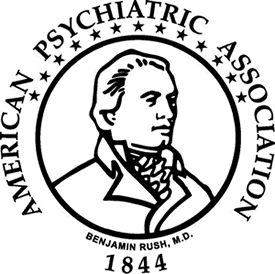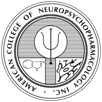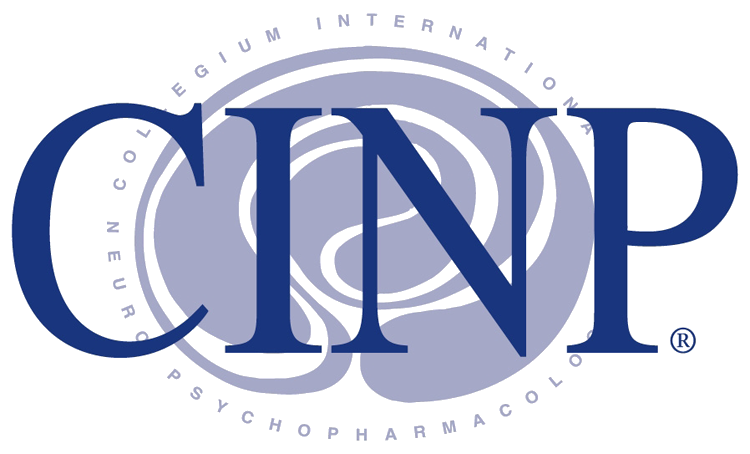General Information
What services do you offer?
Psychopharmacology, Psychiatry, Psychotherapy
What are your qualifications?
- Board Certified in Psychiatry by the American Board of Psychiatry
- Affiliated with 2 major hospitals as a Professor of Clinical Psychiatry, including Columbia Presbyterian Medical Center and the New York State Psychiatric Institute
- Close to 300 medical and scientific publications
- 4 books
How can I get to see Dr. Fieve?
- You may come to his NY office located at 952 Fifth Ave at 76th street, suite 1A-Subway at 77th and Lexington.
- You may also contact the staff if you are interested in E-services (see our E-services section)
Why should I chose Dr. Fieve?
Dr. Fieve prides himself on having extensive training, long-term experience, and an empathetic approach to treating his patients. He is the pioneer in the use of lithium for manic depression in America and has treated more patients suffering from Bipolar Disorder than any other physician in North America over the past 3 decades.
In addition, he is expert at working in partnership with his patients through the application of both medication and `talk therapy.’ He has helped thousands of patients gain freedom from clinical depression, bipolar illness and their chronic treatment resistant forms, enabling them to live normal lives to the fullest.
Where are you located?
We are located on:
Fifth Avenue, right across from Central Park. 952 Fifth Ave at 76th street, suite 1ANew York, NY 10075
Phone: 212.249.1600
Ask for Paula to discuss your needs and if you wish to schedule an appointment.
Fax : 212.288.0809
Email : paula@fieve.com
What forms of payment do you accept?
We accept Visa ,Mastercard, Amex, Checks and Cash
What are some of the conditions you treat?
Dr. Fieve diagnoses and treats many mental and emotional illnesses and is skilled in dealing with the chemical imbalances that can occur in the brain that have significant impact on emotional well-being and functioning. Among the many conditions he treats are:
- Clinical and treatment resistant depression
- Bipolar disorder I and II
- Mood disorders
- Thoughts of suicide
- Mood swings
- ADD/ ADHD
- Anxiety Disorders
- Obsessive compulsive behavior
- Social anxiety
- Panic attacks
- Schizophrenia/Schizoaffective
What is Bipolar Disorder?
Bipolar disorder is a psychiatric condition characterized by mild, moderate to severe disturbances in mood. People suffering from bipolar disorder go through episodes of mania (severe highs), hypomania (mild highs) and depression (mild to debilitating lows) that they cannot control.
What is mania? Mania is characterized by an extremely elevated mood and seemingly endless energy, a decreased need for sleep, excessive irritability and anxiety, strange or unusual thought patterns, rapid speech, ideas of grandiosity and periodic episodes of paranoia, rage and euphoria.
What is depression? Depression is a feeling of sadness and melancholy that disrupts one’s daily functioning. A person with depression loses interests in activities that were previously enjoyable, is unable to concentrate, feels fatigued, helpless, hopeless, worthless and even suicidal, gains or loses weight, has insomnia or oversleeps.
There are four types of bipolar disorder: Bipolar I, Bipolar II, Cyclothymia and Bipolar disorder NOS (Not Otherwise Specified).
Bipolar I requires one or more manic or mixed episodes.
Bipolar II, which is the most common form of the disease, is characterized by alternating episodes of hypomania (at least one instance) and depression. The manic phase must be present in order to distinguish bipolar disorder from standard depression.
Cyclothymic disorder involves numerous hypomanic episodes with a spattering of depression.
Bipolar disorder NOS means that the person is clearly suffering from a type of bipolar disorder but does not meet the full criteria for any of the above
How do I know if I suffer from Bipolar disorder?
The following questions are NOT meant to replace a Doctor’s diagnosis but may help you identify Bipolar Disorder.
- 1. Has anyone in your family ever been diagnosed with bipolar disorder?
Typical depressive symptoms:
- 2. Do you go through intervals where you feel any of the following: (Check all that apply.)
Typical Hypomanic/Manic symptoms:
- 3. Have you had thoughts racing through your head so fast that you were unable to control them?
- 4. Are you sometimes very angry, suspicious or hostile for no reason?
- 5. At times, do you feel much more talkative or speak much faster than usual?
- 6. Do you often have periods of tearfulness and other times when you laugh excessively?
- 7. Are there times when you feel like you have done a lot during the day but still feel you could do more and continue working past midnight?
- 8. Have you ever experienced feelings of euphoria for at least 3-7 days, felt `on top of the world’ and were `the life of a party’?
- 9. Do you get so overwhelmed at times that you forget very important things?
- 10. Have you ever had extremely impulsive behavior such as spending a lot of money all at once or running up credit card debt?
- 11. Are there times when you seemed to talk constantly and couldn’t seem to stop?
- 12. Are there times when you feel more self confident (almost unbeatable) than usual?
- 13. Are there times when you are so easily distracted that you cannot seem to focus on something you are trying to finish?
- 14. Do you have times when you need very little sleep? (3-5 hours days on end) And then are there times when you oversleep?
- 15. Do you constantly seem to be having mood changes, from one extreme to another?
- 16. Has your sex drive greatly increased?
If your answer is “yes” to at least half of these questions, you might want to seek a professional opinion. You may have Bipolar Disorder and may benefit from a physician’s opinion on the proper choice of a medical treatment and whether psychotherapy or both are needed.
What is the general treatment for Bipolar Disorder?
Usually the treatment plan for Bipolar Disorder involves administration of a mood stabilizer such as lithium or an alternative mood stabilizer like Depakote accompanied at times by an antidepressant or a typical medication such as Risperdal, preferably in conjunction with talk therapy.
What is Lithium?
Lithium has been the first choice for 50 years by the world’s experts for the treatment of bipolar disorder, sold under the names of Carbolith, Duralith, Eskalith, Lithane, Lithizine and Lithobid.
Lithium helps reduce the severity and frequency of mania and recurrent depression, thereby stabilizing a person’s mood. It may also help relieve bipolar depression and help people gain more control over their emotions and reduce their extremes in behavior.
Studies show that lithium is the most anti-suicidal drug that psychopharmacologists have at their disposal to treat bipolar illness. It also helps prevent most future manic and depressive episodes. As a result, it may be prescribed for long periods of time as a maintenance therapy.
The correct dosage of lithium varies among individuals. Bipolar disorder is often treated with more than one drug but some patients can control their condition with Lithium alone.
The world experts using lithium treatment for Bipolar Disorder insist that lithium blood tests be monitored on a weekly basis for unstabilized patients and on a routine monthly basis for those bipolar patients who are stabilized and feel well.
Lithium, under the hands of an expert has 0 to minimum side effects. An untrained physician should not administer Lithium; only a trained psychopharmacologist.
About the Process
How do we proceed?
1.Our initial evaluation includes:
- A full description and history of the current problem
- The patient’s personal life history
- Detailed Family history as well as history of psychiatric disorders in family members
- Current medical status
- The patient’s medical history
2. Lab tests:
- In addition to the initial psychiatric evaluation, a physical examination with EKG and blood tests are required. This may be performed by the in-house M.D. in Dr. Fieve’s office or by a personal family physician.
- For the patient’s convenience, Dr. Fieve is able to take lithium levels in his laboratory/office and discuss the results during the interview
- The lithium level must be maintained in a therapeutic window that Dr. Fieve determines for each patient to maximize its preventive effects on future highs and lows and to minimize any possible side effects.
3. Follow-up visits:
- A review of material from the initial psychiatric evaluation as well as tests and medical reports to discover any medical problems that might mimic or exacerbate the psychiatric condition and its psychological components.
- An adjustment of medication is necessary in order to achieve the desired therapeutic results and minimize any possible side effects.
What will the course of treatment be?
Depending on the results of the evaluation of the problem, Dr. Fieve discusses mode and probable length of treatment with the patient as well as the family, if the patient so desires.
More Information
Are my records confidential?
Absolutely. Strict confidentiality is always maintained. As a patient, information about your treatment is released only to those whom you give written permission to release. In most cases, these are medical doctors. Feel free to discuss any concerns about your privacy and confidentiality with Dr. Fieve or with any member of his staff.
How do you handle emergencies?
Dr. Fieve is always reachable by cellular phone during off-hours.
















